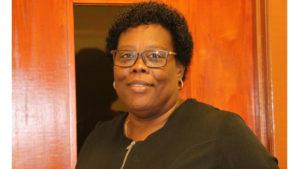 Residents not wanting to divulge their dates of birth has become an issue for the Department of Statistics and Economic Development in the Nevis Island Administration (NIA), as it conducts the 2021/22 Housing and Population Census.
Residents not wanting to divulge their dates of birth has become an issue for the Department of Statistics and Economic Development in the Nevis Island Administration (NIA), as it conducts the 2021/22 Housing and Population Census.
Mrs. Dorriel Tross-Phillip, Director of the Department of Statistics told the Department of Information on June 21, 2022 that the date of birth is the most used format to compile the data received.
“One of the main problems that we have been experiencing is that persons are unwilling to give their date of birth, and one of the most used tabulated tables for the census is the populace by age range, and so if you do not give your date of birth for either you as the individual who is answering the question or the persons who are in your household, then we end up with a lot of gaps in our data and our data is not as reliable as it should be,” she explained.
The Head of the Statistics Department assured persons residing on Nevis that their names are not attached to the data received for processing and encouraged them to give their date of birth to the census enumerators.
“Your data, when it reaches the office, we are not looking at individuals. The names are removed and we are just looking at the data that we can divide the population into the different age groups.
“Let’s take for instance social services. We need to know how many persons are over the age of 60 or 65 or [Department of] Education might need to know how many children are under the age of 5 or between the age of 6 and 12, and so there are various other departments that need the information especially at the age range, and so, we encourage persons who are answering the census questionnaire to please, please, give us the date of birth of the persons within the household,” she said.
The census is a Caribbean Community (CARICOM) project which is being conducted in the 15 member states including: Antigua and Barbuda, Bahamas, Barbados, Belize, Dominica, Haiti, Jamaica, Grenada, Guyana, Montserrat, St. Lucia, Suriname, St. Kitts and Nevis, St. Vincent and the Grenadines, and Trinidad and Tobago.
Mrs. Tross-Phillip indicated that the census is conducted every 10 years and the most recent was earmarked for 2021. However, because of the COVID-19 pandemic, most of the censuses have been pushed to 2022 or 2023.
She explained that the questionnaire used for the census in St. Kitts and Nevis is the same used in other CARICOM member states.
“The questionnaires are generic. The questionnaire that you have in Nevis is the same questionnaire that is in St. Lucia, that is in Suriname, that is in Guyana, that is in Jamaica, and so some people feel that the questions are intrusive but the questions are questions that are on a CARICOM level,” she said.
